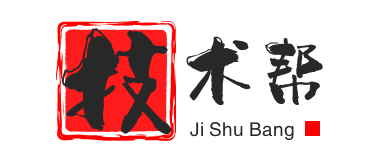在编程领域,对象(Object)和JSON(JavaScript Object Notation)是两种常见的数据格式,在某些场景下,我们需要将对象转换为JSON格式,以便进行数据传输和存储,如何实现对象到JSON的转换呢?本文将详细介绍对象转换为JSON的方法和步骤。
我们需要了解什么是对象和JSON,对象是一种数据结构,用于存储键值对,它可以是一个类的实例、一个字典等,而JSON是一种轻量级的数据交换格式,易于人阅读和编写,同时也易于机器解析和生成。
在Python、Java、JavaScript等编程语言中,都有相应的方法将对象转换为JSON,以下将分别介绍这些语言中对象转换为JSON的具体方法。
Python中的对象转JSON
在Python中,我们可以使用内置的json模块来实现对象到JSON的转换,我们需要创建一个对象,然后使用json.dumps()方法将其转换为JSON字符串。
1、创建对象
假设我们有一个简单的Python类:
class Person:
def __init__(self, name, age):
self.name = name
self.age = age2、转换为JSON
我们创建一个Person对象,并将其转换为JSON字符串:
import json
person = Person("张三", 30)
person_json = json.dumps(person.__dict__)
print(person_json)输出结果为:
{"name": "张三", "age": 30}注意:json.dumps()方法默认情况下无法直接处理自定义对象,因此我们需要先获取对象的__dict__属性,它包含了对象的所有属性和值。
Java中的对象转JSON
在Java中,我们通常使用第三方库如Gson或Jackson来实现对象到JSON的转换,以下以Gson为例进行介绍。
1、添加依赖
在项目的pom.xml文件中添加Gson的依赖:
<dependency>
<groupId>com.google.code.gson</groupId>
<artifactId>gson</artifactId>
<version>2.8.6</version>
</dependency>2、创建对象
创建一个简单的Java类:
public class Person {
private String name;
private int age;
public Person(String name, int age) {
this.name = name;
this.age = age;
}
}3、转换为JSON
使用Gson将Java对象转换为JSON字符串:
import com.google.gson.Gson;
Person person = new Person("张三", 30);
Gson gson = new Gson();
String personJson = gson.toJson(person);
System.out.println(personJson);输出结果为:
{"name":"张三","age":30}JavaScript中的对象转JSON
在JavaScript中,我们可以使用内置的JSON.stringify()方法将对象转换为JSON字符串。
1、创建对象
创建一个简单的JavaScript对象:
var person = {
name: "张三",
age: 30
};2、转换为JSON
使用JSON.stringify()方法将JavaScript对象转换为JSON字符串:
var personJson = JSON.stringify(person); console.log(personJson);
输出结果为:
{"name":"张三","age":30}就是Python、Java和JavaScript中对象转换为JSON的方法,在实际应用中,我们可能会遇到更复杂的情况,如对象中包含日期、自定义类型等,我们需要对转换过程进行一些特殊处理。
1、处理日期
在某些编程语言中,日期类型不能直接转换为JSON,我们需要将日期转换为字符串或其他格式,以下以Java中的Gson为例:
import com.google.gson.Gson;
import com.google.gson.GsonBuilder;
import java.util.Date;
public class Person {
private String name;
private int age;
private Date birthDate;
public Person(String name, int age, Date birthDate) {
this.name = name;
this.age = age;
this.birthDate = birthDate;
}
}
// 使用GsonBuilder设置日期格式
Gson gson = new GsonBuilder().setDateFormat("yyyy-MM-dd").create();
Person person = new Person("张三", 30, new Date());
String personJson = gson.toJson(person);
System.out.println(personJson);2、处理自定义类型
在某些情况下,对象中可能包含无法直接转换为JSON的自定义类型,我们可以使用自定义序列化器进行处理,以下以Java中的Gson为例:
import com.google.gson.Gson;
import com.google.gson.GsonBuilder;
import com.google.gson.JsonElement;
import com.google.gson.JsonSerializationContext;
import com.google.gson.JsonSerializer;
import com.google.gson.JsonPrimitive;
public class Person {
private String name;
private int age;
private CustomType customType;
public Person(String name, int age, CustomType customType) {
this.name = name;
this.age = age;
this.customType = customType;
}
}
// 自定义类型
class CustomType {
private String value;
public CustomType(String value) {
this.value = value;
}
// 获取JSON字符串表示
public String toJson() {
return """ + value + """;
}
}
// 自定义序列化器
class CustomTypeSerializer implements JsonSerializer<CustomType> {
@Override
public JsonElement serialize(CustomType src, java.lang.reflect.Type typeOfSrc, JsonSerializationContext context) {
return new JsonPrimitive(src.toJson());
}
}
// 使用GsonBuilder注册自定义序列化器
Gson gson = new GsonBuilder().registerTypeAdapter(CustomType.class, new CustomTypeSerializer()).create();
Person person = new Person("张三", 30, new CustomType("自定义值"));
String personJson = gson.toJson(person);
System.out.println(personJson);通过以上介绍,相信大家已经掌握了对象转换为JSON的方法,在实际开发过程中,灵活运用这些技巧,可以轻松应对各种复杂场景,希望本文对您有所帮助!

